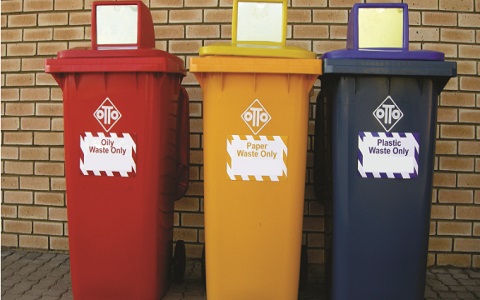

A modern day waste disposal technology is vital for the development of any nation.
It is therefore imperative that environment be kept clean at all times for the good health and well-being of citizens.
Waste disposal is the most pressing environmental challenge confronting both urban and rural areas of the country.
Proper disposal of waste will ensure pollution free environment which has been a major challenge despite various attempts by every successive government.
It is not uncommon to find heap of refuse in nooks and cranny of major cities across the country.
Residential areas, markets, waterways, streets and undeveloped plots of land have been turned to waste dump by many households.
Poor attitude of the public towards waste disposal, low data management, uncontrolled urbanization, industry leakages and lack of political will on the part of leaders among other reasons account for the piling of refuse on major streets across the country.
However, it has been observed that indiscriminate dumping of refuse has increased the production of greenhouse gases such as carbon dioxide which is caused by rapid urbanization and poor waste management.
According to reports from environmentalists, over forty thousand tonnes of waste is generated across the country with only about twenty to thirty percent collected for use while others end up in drainage system.
It is saddening to note that improper waste disposal and management is leading to an environmental degradation, as the country currently lack adequate fund for the implementation of the Integrated Management Programmes on refuse disposal across the states.
Improper waste disposal could cause diseases such as Cholera, Typhoid, airborne diseases and many other infections.
It is in recognition of the need to transform waste to wealth that the United Nations designated every first Monday of October, as World Habitat Day to reflect on the state of our towns and cities, and on the basic right of all, to adequate shelter.
The day is also intended to remind the world that we all have the power and the responsibility to shape the future of our cities and towns.
This year’s theme “Frontier Technologies as an Innovative Tool to Transform Waste to Wealth” focuses on promoting the contribution of innovative frontier technologies to sustainable waste management to achieve Sustainable Development Goal.
To achieve the sustainable development goals on environment, waste disposal require the collaboration of all stakeholders.
It is pertinent for Nigerians to be sensitized on the need to keep the environment clean.
More importantly, citizens must understand the consequences of indiscriminate dumping of refuse and on the other hand government should have a way of enforcing environmental laws on the citizens to ensure compliance.
It is worthy of note that Lagos State has some form of waste recycling processes, other states of the Federation need to emulate this.
There is therefore the necessity to adopt global best practices in refuse management, if the country is to move away from being a dirty society to a cleaner one.
Also, government should revive its regulatory framework that will be attractive for private sectors to invest in waste collection and recycling.
Furthermore, Environmental Health officers Registration Council of Nigeria should intensify efforts to monitor and enforce sanitation laws.
Officials should be well trained on professionalism, service delivery and ensure that other states within the country have access to quality waste managers who are within reach and can assist in the best approach to managing their waste before collection.
Government need to build more recycling plants in addition to the ones in Ekiti and Kano states to ensure good sustainable waste disposal.
Fawzeeyah kasheem